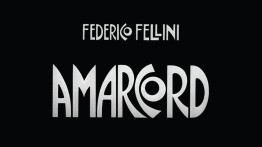COOPERMADE: Fellini Film Titles

It would be fair to say that John Alcorn A'55’s graphic design, typography, and illustration was a cornerstone of 1960s and ‘70s visual culture. He was a highly influential designer who reflected the era and simultaneously shaped it. After studying drawing, architecture, calligraphy, and painting at Cooper, he worked in some of the most exciting art departments and studios of the time—starting at Esquire and then joining his fellow Cooper grads at the legendary Push Pin Studios in 1956. Two years later, he joined CBS, where another alumnus, Lou Dorfsman A'39, was creative director. (There, he worked on the network’s iconic eye logo.) Alcorn went on to design iconic book covers (the Sydney Omarr astrology series, for one) and illustrate children’s books, print advertisements (the Campbell soup kids tricked out as hippies), and billboards like his psychedelic Pepsi ads that positioned the brand as the anti-establishment soda.
Alcorn’s contribution to film came in the early 1970s. He had moved with his family to Italy in 1971, having grown enamored of the culture of his maternal grandparents, who hailed from the Piedmont region. During the period, he designed the opening titles and a poster for Federico Fellini’s Amarcord (1973), the legendary director’s homage to his adolescence, as well as one for Fellini’s 8½ depicting Marcello Mastroianni’s head as a film projector. Today, the singular lettering created by Alcorn, who was awarded Cooper’s prestigious Augustus Saint-Gaudens Award, is synonymous with Fellini, who tapped the designer for his And the Ship Sails On (1983) and Ginger and Fred (1986).





